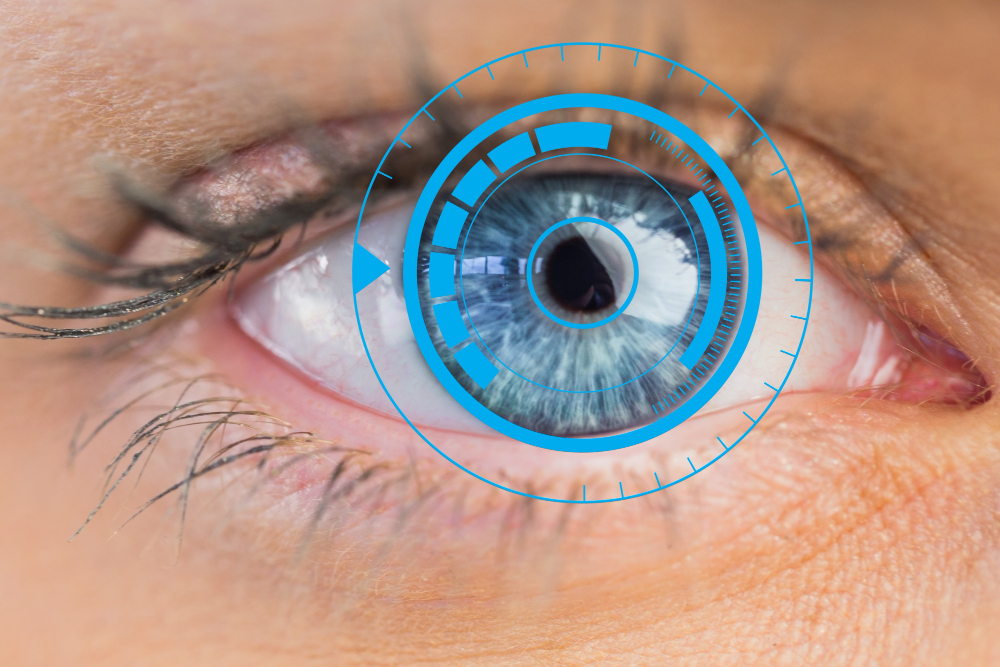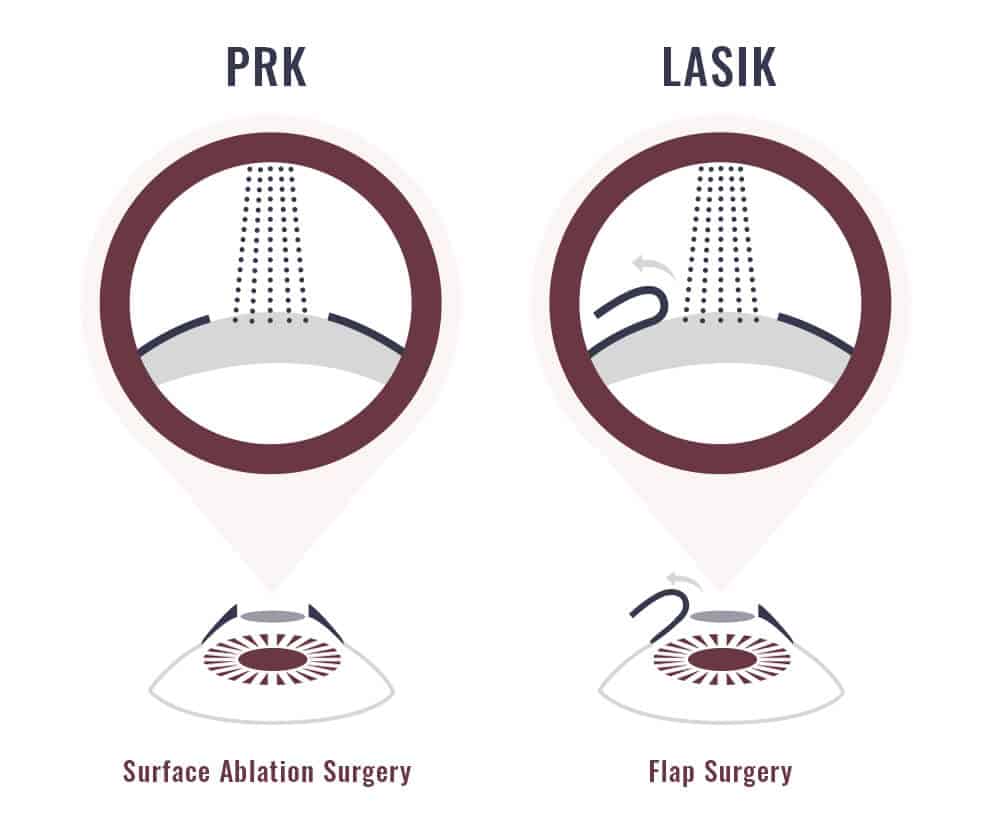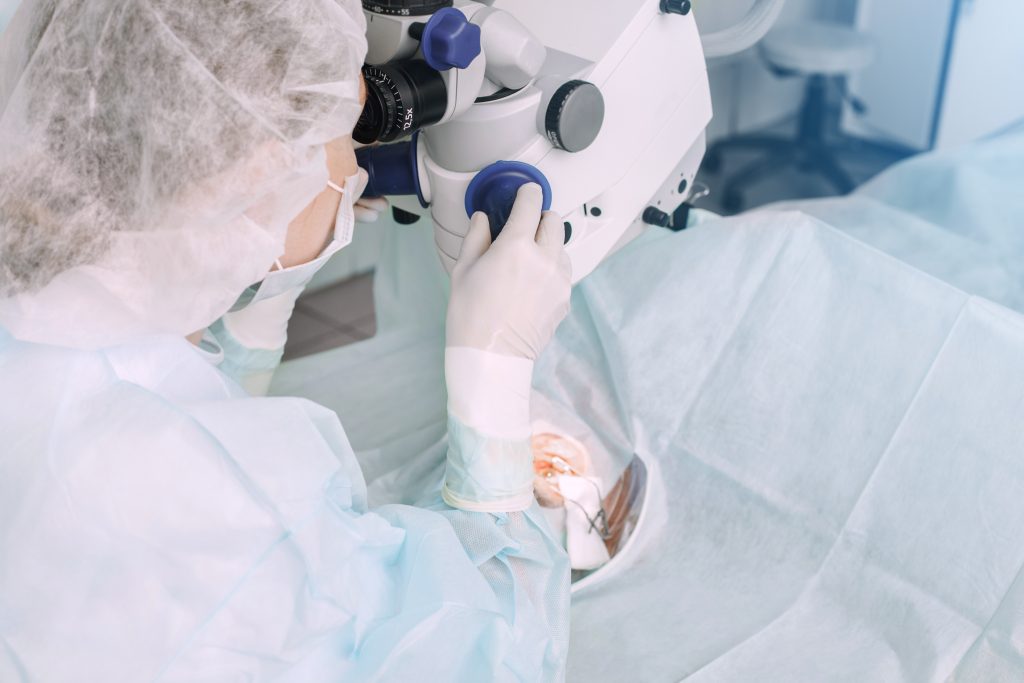Photorefractive Keratectomy (PRK) Eye Surgery
Having good eyesight is crucial for a high standard of living. If your vision is poor, you can opt for a PRK (photorefractive keratectomy) procedure, an outpatient laser eye surgery that corrects nearsightedness, farsightedness, and astigmatism. Around 80% of patients experience better vision within a month after the surgery, and this number increases to 95% within three months.

Advantages of PRK over LASIK
- Creating a corneal flap is not necessary in PRK, which makes it a less complicated procedure and eliminates the possibility of flap-related issues.
- LASIK may not be safe in some patients with abnormal corneal shape or thickness, so alternative measures can be considered.
Who Is A Candidate For PRK?
Candidates considering PRK surgery often have thin or dry corneas. For individuals with such conditions, LASIK and other refractive surgeries may not be suitable options. On the other hand, PRK is often recommended for individuals who have very active lifestyles or jobs as this procedure does not involve creating a corneal flap like LASIK does. The flap in the cornea created during LASIK surgery can accidentally become dislodged and result in complications, which is why PRK is preferred for those with high activity levels.
To proceed with your PRK procedure, certain conditions must be met.
- To qualify, individuals should be at least 18 years old, preferably with patients being over 21.
- Your eye prescription should be stable
- If you have a refractive error, it is necessary for it to meet the specific criteria in order to treat you safely.
- It is important for both your eye health and overall well-being to ensure that your eyes are in good condition and that you maintain good overall health.
- You possess practical expectations regarding the capabilities and limitations of PRK in serving your needs.
What is the purpose of conducting photorefractive keratectomy (PRK)?
A photorefractive keratectomy is a surgical procedure used to correct refractive errors in the eyes. This treatment involves using a laser to reshape the cornea, resulting in improved focus of light rays on the retina. If you have been diagnosed with certain eye problems, you may require a PRK.
- Myopia (nearsightedness).
- Hyperopia (farsightedness).
- Blurred vision is caused by the shape of your eye, referred to as astigmatism.

How Do I Prepare for Photorefractive Keratectomy (PRK)?
Initially, you will have a meeting with either an eye surgeon or a coordinator to discuss the anticipated experiences before and after the surgery. They will assess your medical background and examine your eyes. Common examinations may involve various tests.
- Corneal thickness measure
- Refraction
- Corneal mapping
- Eye pressure check
Next, your surgeon will address any queries or concerns you may have before proceeding to book your surgical procedure.
If you use contact lenses, it will be necessary for you to take a break before the assessment.
- Gas permeable: 2 weeks
- Other types: 5 days
Before undergoing surgery, have a small meal and make sure to take all of your prescribed medications. Avoid wearing eye makeup or large hair accessories that may interfere with positioning your head for the laser. If you are feeling unwell on the day of the surgery, contact the doctor’s office to check if the procedure should be rescheduled.
Photorefractive Keratectomy (PRK) procedure

PRK typically lasts for a duration of 5 to 10 minutes for each eye. This procedure does not necessitate the use of general anesthesia. Instead, either local anesthesia or eye drops with anesthesia may be administered in each eye.
During the procedure:
- To prevent blinking, a device called an eyelid holder will be positioned on both eyes.
- The cells on the surface of your eye will be taken out by the surgeon and thrown away. This can be accomplished using a laser, blade, alcohol solution, or brush.
- Using the measurements of your eyes, the laser will modify each cornea by emitting a pulsating beam of ultraviolet light. While this procedure is taking place, you might hear a sequence of beeps.
- During the healing process, a transparent contact lens that does not require a prescription will be placed on each eye as a protective covering. This will ensure that your eyes stay clean and prevent any possibility of infection. These protective contact lenses will be left on your eyes for a period ranging from a few days to one week.
What Is PRK Surgery Recovery Like?
- Immediately after your surgery, the ophthalmologist will place a protective contact lens over your eye to aid in the healing process.
- After your surgery, it will be necessary for you to arrange for someone to drive you back home. It is recommended that you prepare yourself to return home and either rest or simply unwind following the surgical procedure.
- Your surgeon might recommend taking a few days off work and avoiding strenuous activities for about a week following the surgery to prevent any hindrance in the healing process.
- After undergoing PRK, it is common to experience eye pain for a period of two to three days. This pain can typically be managed with over-the-counter medication. In certain cases, individuals may require prescription eye drops or other medication to alleviate pain. If over-the-counter medication does not provide relief, it is important to contact your ophthalmologist.
- To aid in the healing process, it is important to adhere to the guidelines provided by your ophthalmologist and continue using the prescribed eye drops for a duration of approximately one month.
- Once you have undergone PRK, it will be necessary for you to follow your doctor’s instructions and wear sunglasses whenever you are outside. The reason behind this precaution is that excessive exposure to sunlight has the potential to cause scarring in your cornea, which may result in complications with your vision.
Initially, your eyesight may be unclear following PRK. As you undergo the healing process over a span of 3 to 5 days, your vision will slowly get better. It is important to note that it might require a month or even more to attain your optimal vision.
Treatment in Türkiye:
The medical staff of surgical teams, doctors, and consultants at REHABTÜRK can provide the best treatment options and free consultations, striving to stay up-to-date on the latest medical technologies and methods.
